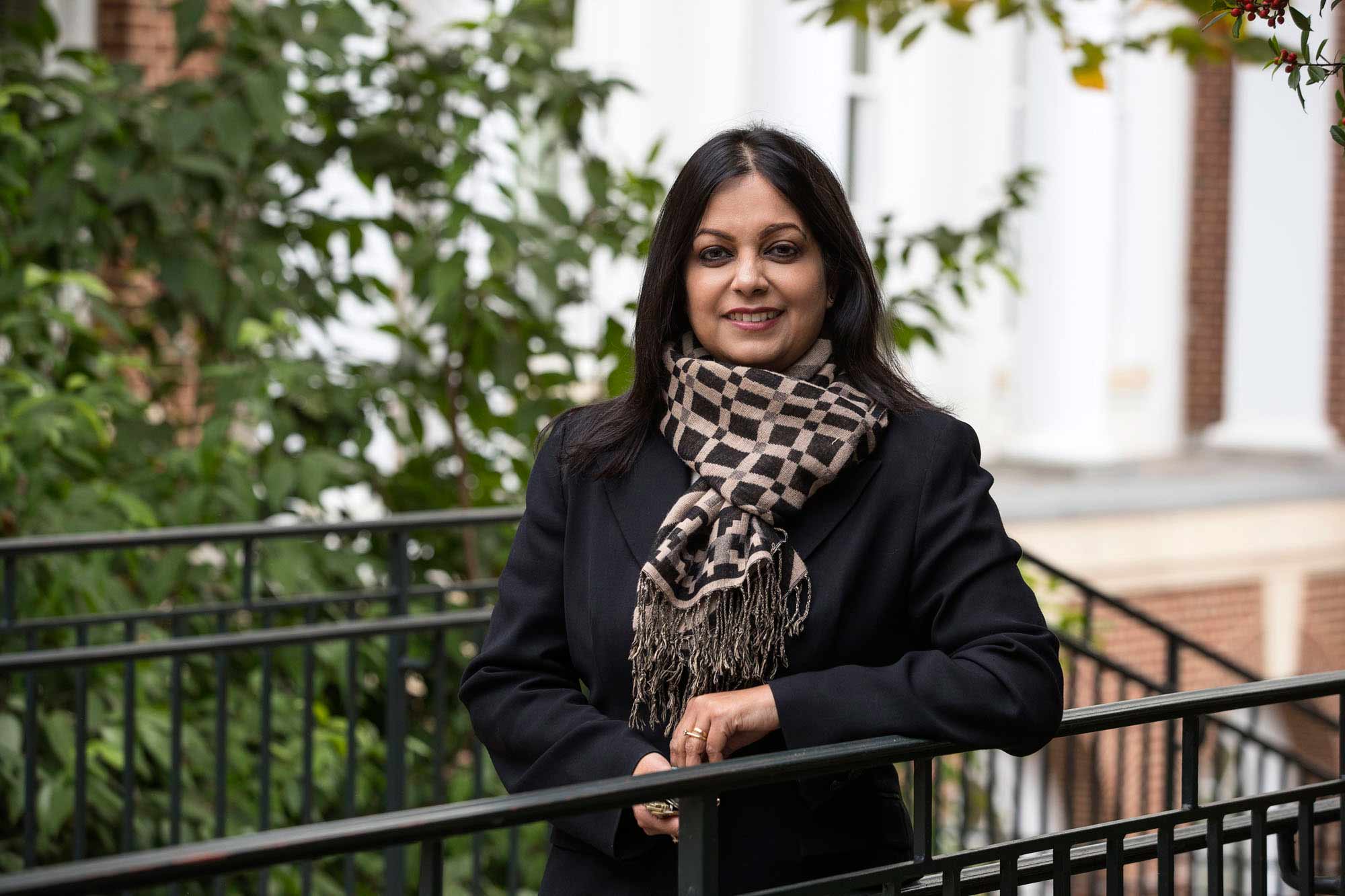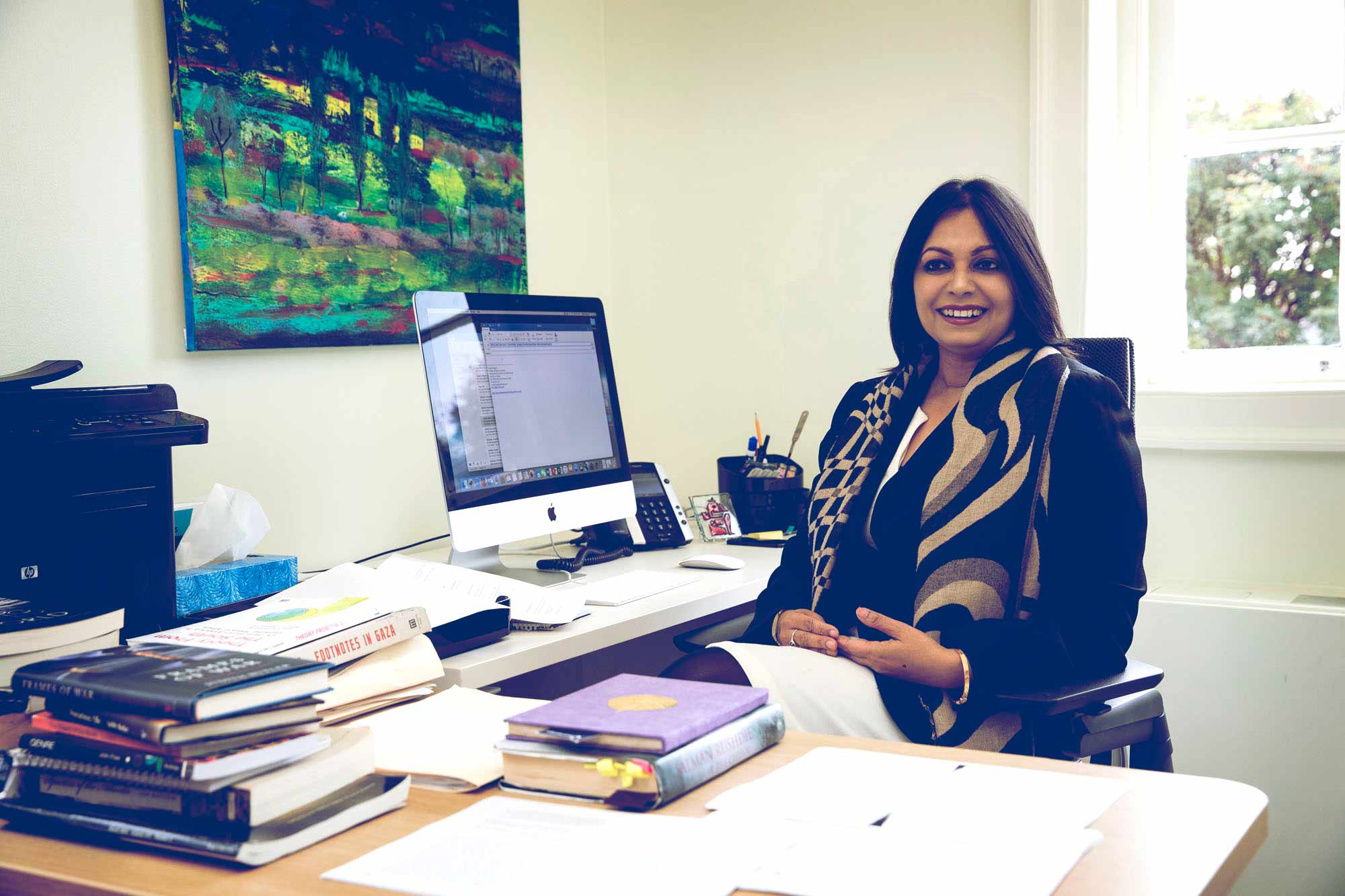As the second head of the University of Virginia’s Institute of the Humanities and Global Cultures, Debjani Ganguly is helping chart the course of the study of the humanities at the University as it heads into its third century.
Speaking recently in her sunny office in Wilson Hall, Ganguly, who is also a professor of English, said her role is giving her the opportunity “to help shape the agenda for the humanities at UVA in very significant ways.”
She arrived on Grounds in January following a competitive application process and replaces former director Michael Levenson, who founded the institute in 2011. The institute is housed in the College and Graduate School of Arts & Sciences.
The world literature scholar came to UVA from Australian National University in Canberra, where she was the director of the Humanities Research Center for seven years.
In her new role, Ganguly is helping the College spearhead a major new initiative dedicated to the study of the “Global South” – work that is being funded by a $3.47 million grant from the Andrew W. Mellon Foundation. The term Global South was originally coined to define developing countries primarily in the Southern Hemisphere.

Debjani Ganguly is the new director of UVA’s Institute of the Humanities and Global Cultures. (Photos by Dan Addison, University Communications)
“I’ll be very busy the next few years implementing that project, which has three components: faculty fellowships, large humanities labs on the Global South, and a series of visiting programs,” Ganguly said.
“One of the things we will be doing through this Global South project is not so much taking the given understandings of the Global South” – often called the Third World during the Cold War era, “but really interrogating the viability of the term or the ways in which the category can speak to the very rapid global transformations in ways that have not been imagined so far.”
Ganguly just published a book, “This Thing Called the World: The Contemporary Novel as Global Form,” which argues that the current form of global literature came into being in 1989. This, she writes, is due to the consolidation of the Information Age, a perpetual state of global war and an expanded focus on humanitarianism.
In the book, which took her five years to write, Ganguly analyzes novels from such authors as Salman Rushdie, Don DeLillo and Michael Ondaatje. The English professor said she is interested in how things like the wars in Iraq and Afghanistan and post-9/11 America find their way into contemporary novels.
Ganguly’s current research focuses on the literary and cultural histories of connections created by oceans, particularly those created by the Indian Ocean. She said much of the study of the world has been terrestrial and nation-based.
“Looking at the world through its oceans presents a new paradigm,” she said. “It’s a way of imagining the making of the Indian Ocean world through the last three centuries and where it has not featured in the larger narrative of the making of Western modernity.”
The trade routes in the Indian Ocean were critical to the consolidation of the British Empire, she noted. “The opium trade between India and China is one example, where the opium trade really funded the British Empire in serious ways that were never part of the narrative of imperial dominance or imperial history.
“This is where those excavated oceanic connections become very important,” she added.
Ian Baucom, Buckner W. Clay Dean of Arts & Sciences, said Ganguly’s credentials are just what the University needs.
“Debjani Ganguly is perfectly suited to take the Institute of the Humanities and Global Cultures to the next level of impact, both within UVA and internationally,” he said. “She brings outstanding administrative experience as well as rare intellectual vibrancy. In her writing, her lectures and even her conversations, one quickly appreciates how she understands and fluently crosses global landscapes of thought. Most important, however, she has a vision for what the humanities mean for the whole university and how the humanities matter to global cultural exchange.”
Editor’s note: This is another installment in an occasional series profiling members of a generational wave of new faculty members at the University of Virginia.
Media Contact
Article Information
October 31, 2016
/content/new-director-humanities-and-global-cultures-brings-ocean-view-uva


